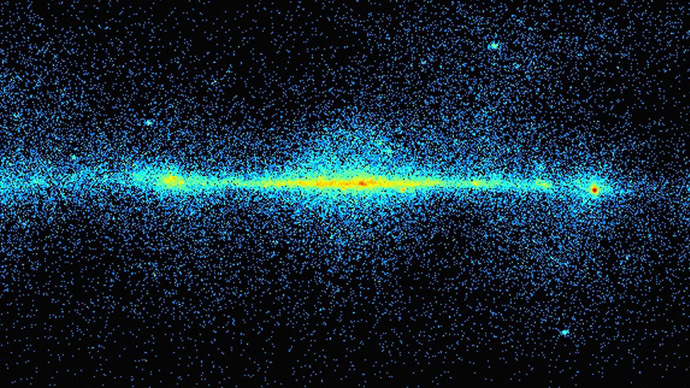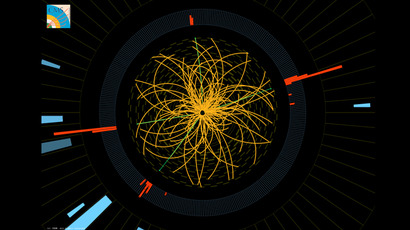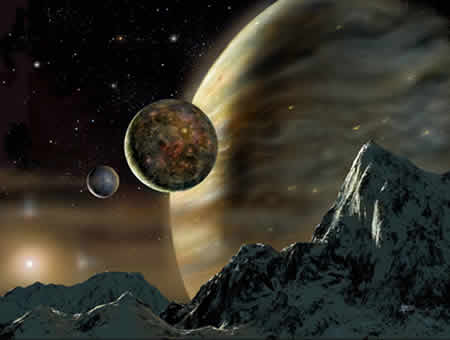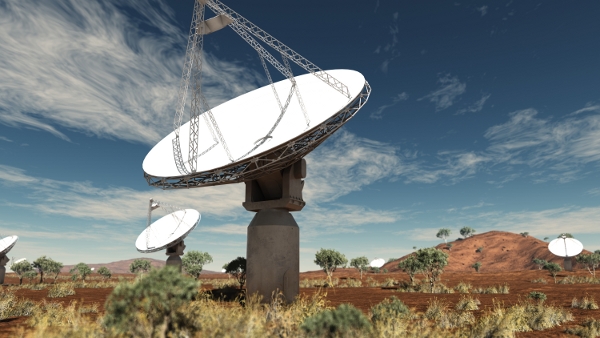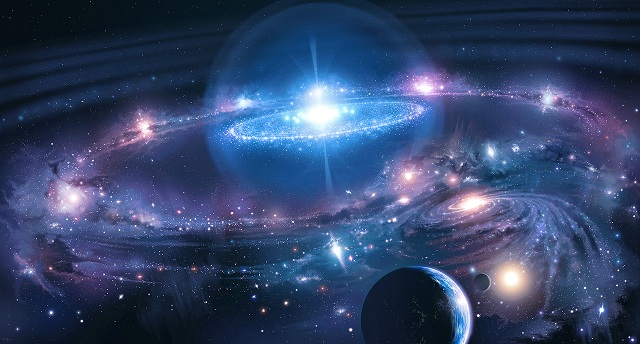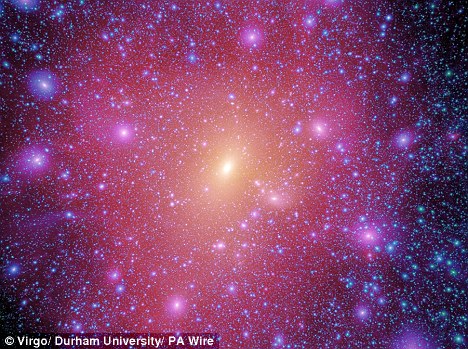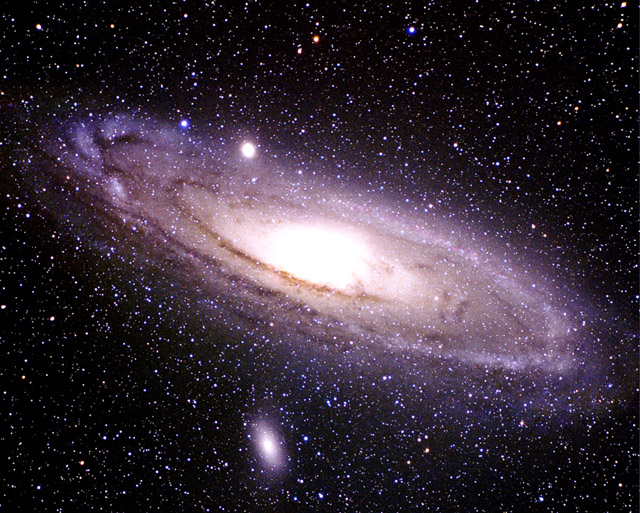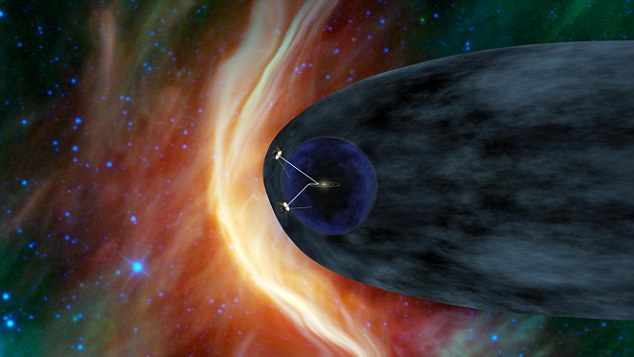Home » Posts tagged with "Universe"
World's largest gamma telescope to study cosmic rays from Siberia
NASA image from 21 March, 2000 shows a “direct” picture of the first four years of Compton Gamma-Ray Observatory spacecraft’s Energetic Gamma-Ray Experiment Telescope(EGRET) data.
A desolate site in Siberia will soon become the forefront of international research into the secrets of the Universe, after the world’s biggest gamma ray detection array scientists are creating there comes...
Universe 100 million years older than previous estimates
An image of the anisotropies of the Cosmic microwave background as observed by Planck and released by the European Space Agency on March 21, 2013.
A new study on the radiation leftover from the outset of creation of the universe has revealed that the Big Bang occurred 100 million years earlier than previous estimates around 13.8 billion years ago.
The analysis of the data collected by the European...
God Particle confirmed: CERN says data strongly indicates Higgs boson found
It is now almost certain the subatomic particle that brings together everything in the universe has been found, CERN scientists announced on Thursday. Latest analysis of data from the Large Hadron Collider proves that the Higgs boson actually exists.
The search for the missing particle dubbed as ‘the holy grail of physics,’ which has been going on for almost half a century and has brought the...
Universe doomed: LHC scientists say
Simulation of the detection of a Higgs boson
A leading scientist says the universe we live in has a limited life span and will most likely be “wiped out” billions of years from now.
Joseph Lykken, a theoretical physicist with the Fermi National Accelerator Laboratory in Batavia, Illinois, made the remarks in Boston on Monday before he presented his research at a meeting of the American Association...
Scientists discover black holes weighing 40 billion suns
The bright spot at the center of this large elliptical galaxy is one of the biggest black holes in the universe, which scientists recently found is even bigger than previously thought. This galaxy is in the center of the galaxy cluster PKS 0745-19, which is located about 1.3 billion light years from Earth
It turns out that the largest black holes may be even bigger than scientists previously thought....
Astronomers discover biggest object in the Universe
Astronomers have discovered the most massive, for the time being, object in the universe. This is a supermassive black hole at the center of Galaxy NGC 1277 in the constellation of Perseus. The black hole is 228 million light years far from Earth.
The discovery was made by a group of German scientists from the Institute for Astronomy in Heidelberg during the analysis of the images of the galaxy obtained...
Was space conquest an avatar of the mind control?
“2001: A Space Odyssey” may have been the most famous and commented film of science-fiction, yet it is too the most ridiculous. His technical agenda has been humiliated by the time, like the whole dreams of this modern deceiving world. In 2001 we haven’t landed on Jupiter or in one of its satellites. In 2012 we are not traveling anywhere; we are not even traveling anymore. The space...
Aussie super-scope begins ET hunt
The initial stage of unprecedented radio telescope has been officially opened in Australia. The project will explore the universe in search of new galaxies, black holes, planets and even intelligent extraterrestrial life – if there is any.
In the heart of red desert where man-made radio signals are minimal the AUS$152 million worth telescope will scan space for traces of the beginning of the universe,...
Humanity’s Greatest Secret: Stairway to the Universe
Mankind is at a crossroads. Humanity faces a decision: embrace the dreams of the universe and the fact that humanity is special and has potential, or succumb to the death of domination by a predatory elite bent on wrecking the species and limiting the paradigms of the mind.
Source
Read More »
Scientists suggest that the universe could grind to a halt
A computer visualization of dark matter in the Universe which scientists have previously battled to explain
People often say that time speeds up as we age, but if the latest scientific theory is true the opposite could well be the case.
The radical theory by academics suggests that time itself could be slowing down – and may eventually grind to a halt altogether.
The latest mind-bending findings...
Astronomers discover faintest distant galaxy
False color image of the galaxy LAEJ095950.99+021219.1.
Astronomers at Arizona State University have located a remote and faint galaxy, which is one of the ten most distant known objects in the space.
The team used the IMACS instrument on the Magellan Telescopes in Chile and identified the galaxy ‘LAEJ095950.99+021219.1’ that is about 13 billion light-years away from the Earth.
“This galaxy...
NASA unveils new atlas of the entire infrared sky
Astronomers analyzed the data and then combined them into an atlas of more than 18,000 images and a catalog of the properties of more than 560 million individual objects.
NASA has released a new atlas and catalog of the entire infrared sky with more than a half billion stars and galaxies many of which have never been seen before.
Scientists used the images taken by the Wide-field Infrared Survey Explorer...
Big Holes in Big Bang Theory
Big Bang scientists extrapolate a hypothetical scenario from a few facts. Yes, some galaxies are expanding, moving further away, but this is not the case with the entire universe. There are galaxies in the universe running perpendicular to the rest of the galaxies. That’s contrary to Big Bang. If Big Bang really occurred, there should be a uniform distribution of gasses.
This uniform distribution...
Milky Way's True Colors Revealed
Astronomers at the University of Pittsburgh say they have determined the exact color of the Milky Way Galaxy as it is seen from other far away galaxies.
Findings indicate that the Milky Way is redder than most spiral galaxies but when combined with its blue arms its overall color is white.
“The best description I can give would be that if you looked at new spring snow, which has a fine grain...
Voyager probe Reaches Outer Limits of the Solar System
More than three decades after launching, NASA’s workhorse spacecraft is inching closer to leaving the solar system behind.
Currently 11 billion miles away from the sun, Voyager 1 has been exploring the fringes of the solar system since 2004.
On Monday, the spacecraft entered a new region, known as the ‘stagnation zone’ – an area close to the very edge of our solar system, affording...
